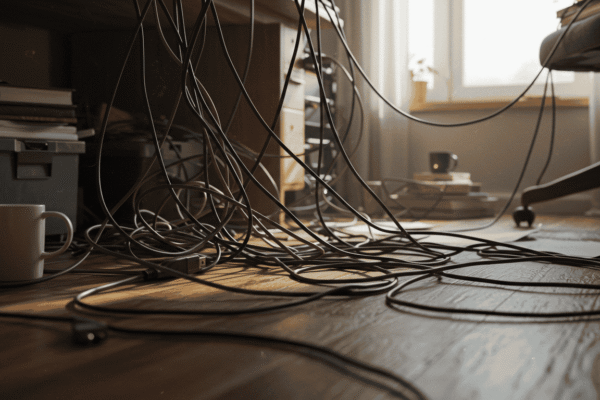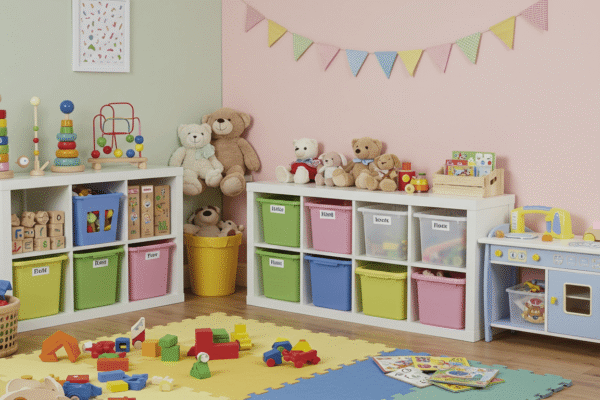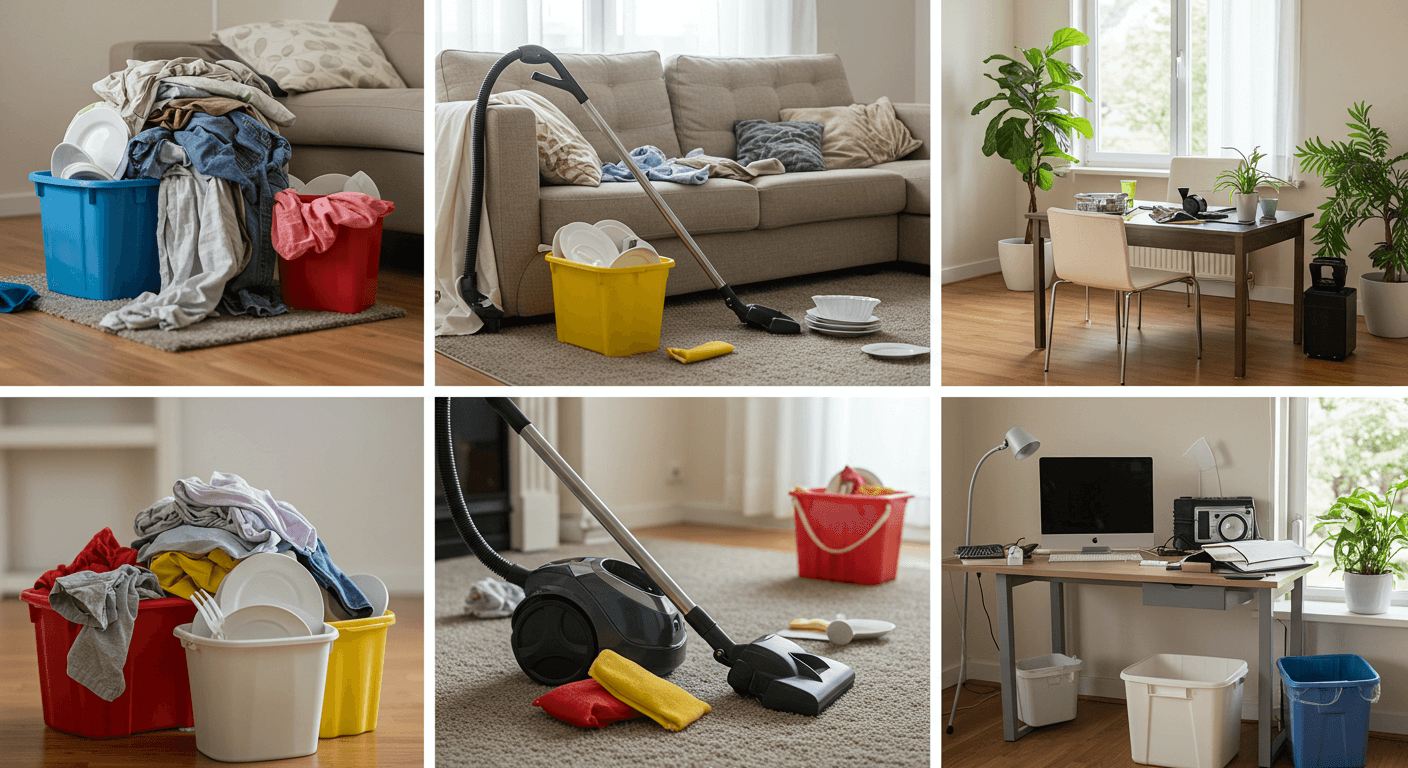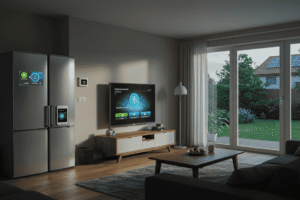Smart habits have the power to completely transform your home and life in ways you might not expect. Often, it’s the small, consistent actions we take every day that lead to the biggest improvements—not just in the way our homes look and function, but also in our overall well-being and productivity. By adopting smart habits for home and daily life, you can reduce stress, save time and money, and create a more comfortable and efficient living space.
In this guide, you’ll discover practical, easy-to-implement habits that go beyond the usual advice. Whether it’s organizing clutter, saving energy, or building healthier routines, these life-changing smart habits will help you create a home environment that supports your best self. Let’s dive in and explore how making small adjustments can lead to a happier, more balanced lifestyle.
Why Smart Habits Matter More Than You Think
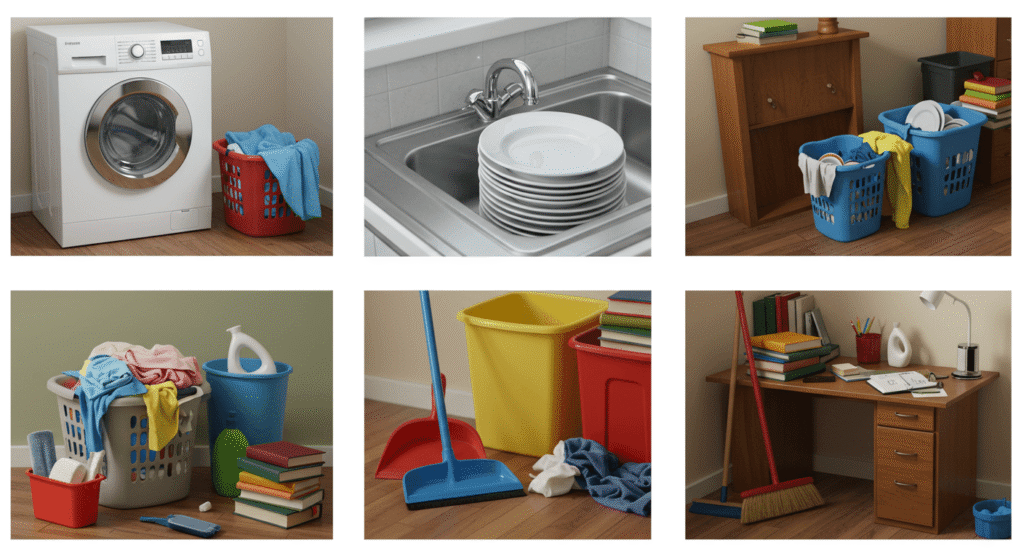
Developing smart habits is one of the most effective ways to improve both your home environment and your daily life. While big changes can seem overwhelming or hard to maintain, small consistent actions create lasting positive effects. These habits shape how you manage your time, energy, and resources, leading to better organization, reduced stress, and more efficient routines. Understanding why smart habits for home matter can motivate you to start making simple adjustments that truly add up over time.
The Hidden Power of Small Changes
Sometimes, it’s easy to overlook how tiny changes impact your overall lifestyle. But the truth is, small habits—when done regularly—compound into significant benefits. For example, turning off lights when you leave a room or tidying up for just five minutes a day can save energy, reduce clutter, and make your home feel more welcoming. These little steps build momentum and encourage you to adopt even more positive habits, transforming your space and mindset without overwhelming effort.
How Smart Habits Affect Both Your Home and Your Well-being
Smart habits don’t just improve your physical surroundings—they also enhance your mental and emotional well-being. An organized, clean home can reduce anxiety and create a sense of calm. Energy-saving routines lower your bills, easing financial stress. Productive daily habits help you focus and find more time for activities you enjoy. When you integrate these habits into your lifestyle, you create harmony between your home environment and personal health, resulting in a happier, more balanced life.
What You’ll Learn in This Guide
This guide will introduce you to a range of practical, actionable smart habits for daily life and home management. You’ll find tips on organization, energy conservation, cleaning routines, productivity, and sustainable living—all designed to fit into your busy schedule. You’ll also discover how to maintain these habits long-term, overcoming common obstacles and tracking your progress. By the end, you’ll be equipped to transform your home and life one habit at a time.
Smart Habits for an Organized and Clutter-Free Home
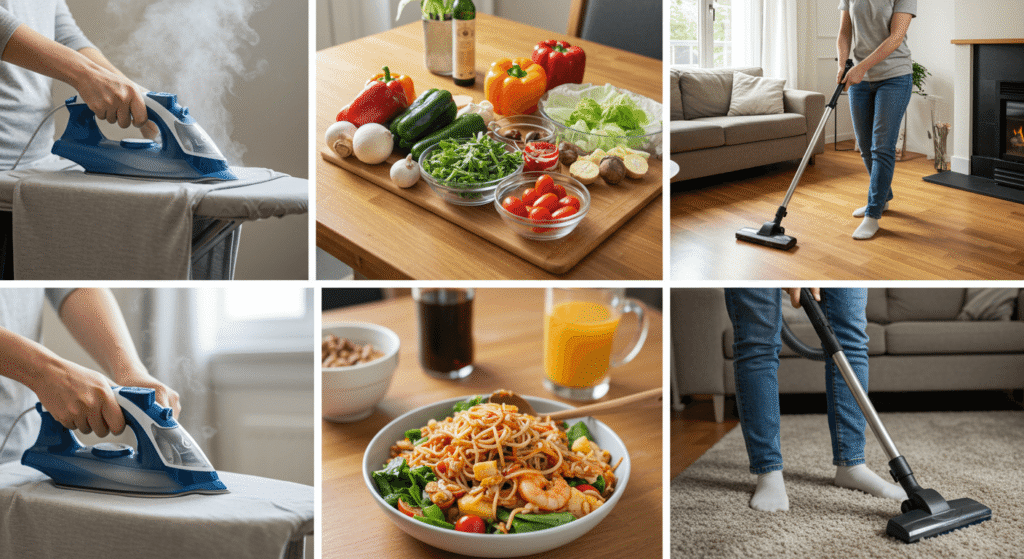
Creating an organized and clutter-free home starts with adopting smart habits that fit naturally into your daily routine. It’s not about a one-time deep clean but about small, consistent actions that prevent mess from piling up and make your space more functional and relaxing.
The Decluttering Mindset – Less is More
The key to lasting organization lies in shifting your mindset. Embracing the idea that less truly is more helps you make thoughtful choices about what to keep and what to let go of. When you regularly evaluate your belongings and clear out what no longer serves you, you create room for what matters most. This habit reduces stress, frees up space, and makes cleaning easier.
Daily Mini-Cleaning Rituals That Save Time
Instead of dedicating hours to cleaning, try breaking tasks into mini-rituals lasting just a few minutes each day. For example, spending five minutes wiping down kitchen counters or putting away clothes before bed prevents clutter from accumulating. These small habits add up, saving you time and effort in the long run while keeping your home consistently tidy.
Practical Storage Solutions for Real Life
Smart organization isn’t about expensive furniture or complicated systems—it’s about practical, easy-to-maintain storage solutions that work for your lifestyle. Using baskets, hooks, and labeled containers can make tidying quick and intuitive. The goal is to create designated spots for everyday items, so everything has a place and can be found easily.
Visual Idea: A table comparing “Common Clutter Zones” with “Smart Habit Solutions” can help readers identify problem areas and implement targeted habits.
| Common Clutter Zones | Smart Habit Solutions |
|---|---|
| Entryway (shoes, bags) | Daily 5-minute tidy-up and shoe rack |
| Kitchen counters | Clear counters each evening |
| Living room surfaces | End-of-day quick pick-up |
| Bedroom dresser tops | Weekly sorting and drawer organization |
| Bathroom countertops | Wipe down daily and store essentials neatly |
This table offers a clear and practical way to tackle clutter step-by-step, making the goal of an organized home feel achievable.
Energy-Saving Smart Habits That Cut Your Bills
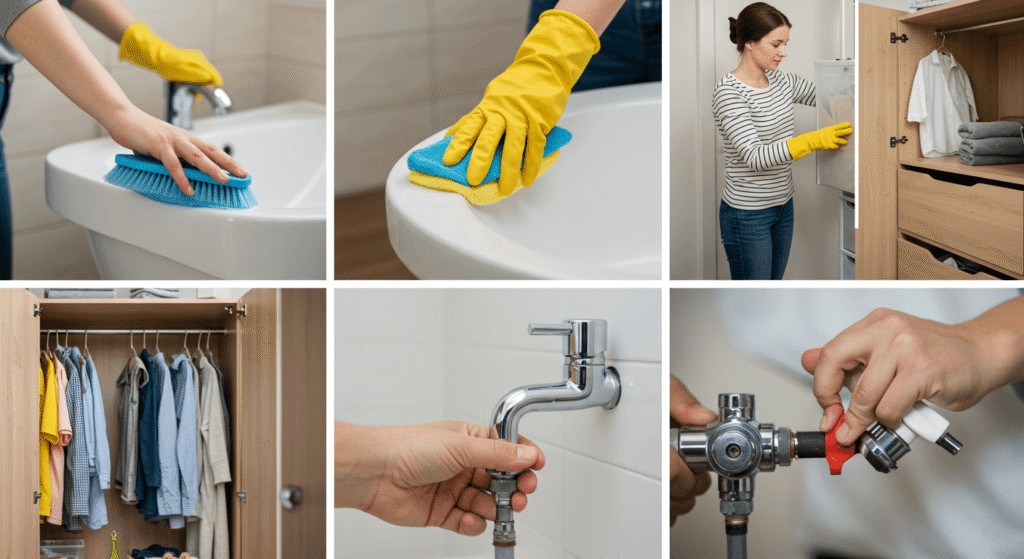
Reducing your energy consumption doesn’t require major lifestyle changes—just a few smart habits integrated into your daily routine can make a noticeable difference. These habits not only help the environment but also lower your utility bills, freeing up money for other priorities.
Simple Daily Actions to Reduce Energy Waste
Small actions like turning off lights when leaving a room, unplugging devices not in use, and using energy-efficient settings on appliances can significantly cut energy waste. Developing the habit of being mindful about when and how you use electricity encourages ongoing savings without sacrificing comfort.
Optimizing Natural Light and Ventilation
Harnessing natural resources is one of the easiest and most cost-effective ways to reduce energy consumption. Opening curtains during the day to maximize sunlight reduces the need for artificial lighting. Similarly, using cross-ventilation by opening windows strategically can cool your home naturally, lessening reliance on air conditioning.
Scheduling and Time-Blocking for Energy Efficiency
Another powerful habit is to schedule energy-intensive tasks during off-peak hours or times when renewable energy sources are most available (if applicable). For example, running your dishwasher or laundry in the evening can lower costs. Time-blocking these activities into your routine helps make your energy use more efficient and predictable.
Smart Cleaning Habits for Busy Lives
Balancing a busy schedule with keeping a clean home can feel overwhelming, but adopting smart cleaning habits makes it manageable and even satisfying. The secret is to prioritize tasks wisely and use methods that save time while being effective and gentle on your home and health.
Prioritizing Tasks: What to Clean When
Not all cleaning tasks require daily attention. Learning to prioritize by urgency and impact helps you focus on what matters most. High-traffic areas and frequently used surfaces deserve daily care, while less-used spaces can be tackled less often. This approach prevents burnout and keeps your home consistently clean without feeling like a chore marathon.
Using Eco-Friendly and Natural Cleaning Techniques
Incorporating natural, eco-friendly cleaning methods not only protects the environment but also creates a healthier living space. Simple ingredients like vinegar, baking soda, and lemon juice can replace harsh chemicals for many cleaning needs. Adopting these smart cleaning habits reduces exposure to toxins and often saves money.
Creating a Weekly Cleaning Routine That Sticks
Building a weekly routine tailored to your lifestyle helps make cleaning predictable and automatic. Setting specific days for certain tasks, like vacuuming on Mondays and bathroom cleaning on Thursdays, creates structure. Consistency turns these chores into habits, freeing mental space and reducing last-minute stress.
Table Idea: The following table categorizes cleaning tasks by frequency with estimated time commitments to help readers plan their schedules effectively.
| Cleaning Tasks | Frequency | Estimated Time per Task |
|---|---|---|
| Wiping kitchen counters | Daily | 5 minutes |
| Sweeping/vacuuming | Weekly | 20 minutes |
| Bathroom deep clean | Weekly | 30 minutes |
| Dusting furniture | Weekly | 15 minutes |
| Refrigerator cleaning | Monthly | 30 minutes |
| Washing windows | Monthly | 40 minutes |
This clear breakdown supports readers in creating manageable cleaning routines that fit their busy lives without overwhelming them.
Building Healthy Living Habits at Home
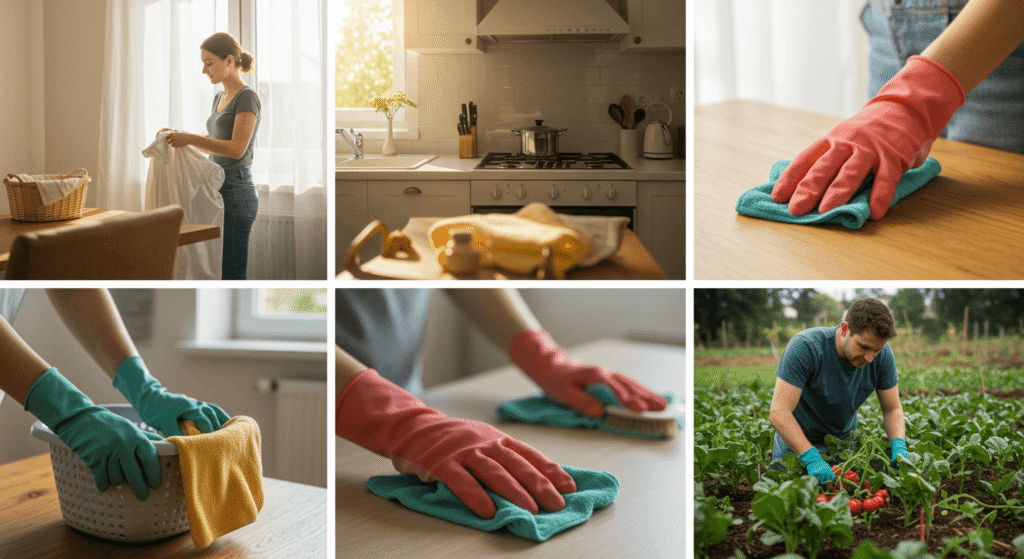
Creating a healthy home environment goes beyond cleanliness and organization. By cultivating smart habits that promote wellness, you can boost your physical and mental health while making your space a sanctuary for relaxation and rejuvenation.
Indoor Air Quality: Simple Habits for Freshness
Maintaining good indoor air quality is essential for your well-being. Simple habits like regularly opening windows to allow fresh air circulation, using natural air purifiers such as houseplants, and minimizing sources of indoor pollutants (like harsh chemicals or excessive dust) contribute to cleaner, healthier air. These smart habits can reduce allergies, improve sleep, and enhance overall comfort.
Incorporating Mindfulness and Calm into Your Space
Your home should be a place where you feel calm and centered. Introducing mindful habits—such as setting aside a few minutes daily for deep breathing, decluttering with intention, or creating a dedicated quiet corner—can help cultivate mental clarity and reduce stress. Mindfulness transforms your home from a mere living space into a peaceful retreat.
Hydration and Nutrition Habits That Boost Energy
Smart habits around hydration and nutrition play a vital role in sustaining energy throughout the day. Keeping a water bottle visible as a reminder, prepping healthy snacks in advance, and scheduling regular meal times help maintain balanced energy levels. When your body is well-fueled and hydrated, your productivity and mood improve naturally.
Productivity-Boosting Habits for Home Life
Boosting productivity at home requires more than just working harder—it’s about cultivating smart habits that optimize your time, energy, and focus. By structuring your day intentionally and minimizing distractions, you can achieve more while feeling balanced and in control.
Morning Routines That Set You Up for Success
How you start your day often determines how productive it will be. Establishing a consistent morning routine that includes activities like light stretching, planning your day, and a brief mindfulness moment prepares your mind and body for focused work. These habits create momentum that carries you smoothly through tasks.
Time-Blocking and Prioritizing Tasks
One of the most effective smart habits for daily life is time-blocking—allocating specific chunks of time to tasks based on priority. By scheduling work sessions and breaks deliberately, you avoid multitasking and reduce decision fatigue. Prioritizing urgent and important tasks ensures you spend energy on what truly matters each day.
Minimizing Distractions for Focused Time
Distractions at home can quickly derail your productivity. Developing habits like setting boundaries with family members during work hours, turning off non-essential notifications, and creating a dedicated workspace help maintain focus. The more you train yourself to protect your concentration, the more efficient and fulfilling your work becomes.
| Time | Activity | Smart Habit Focus |
|---|---|---|
| 6:30 – 7:00 AM | Morning stretch & mindfulness | Morning routine |
| 7:00 – 7:30 AM | Planning & prioritizing tasks | Time-blocking |
| 7:30 – 10:00 AM | Focused work session | Minimizing distractions |
| 10:00 – 10:15 AM | Break & hydration | Energy maintenance |
| 10:15 – 12:00 PM | Task completion | Time-blocking |
| 12:00 – 1:00 PM | Lunch & light walk | Mindfulness & health habit |
| 1:00 – 3:00 PM | Afternoon work session | Focused time |
| 3:00 – 3:15 PM | Break | Recharge |
| 3:15 – 5:00 PM | Wrap-up tasks & prep for next day | Prioritizing & planning |
Sustainable Living Habits That Make a Difference
Adopting smart habits for sustainable living helps reduce your environmental impact while making your home more efficient and mindful. These changes don’t have to be drastic—small, consistent actions can add up to a big difference over time.
Waste Reduction and Recycling Made Easy
Cutting down on waste begins with awareness and simple habits like sorting recyclables correctly, composting organic waste, and avoiding single-use items. By incorporating these practices into your daily life, you minimize landfill contributions and support a healthier planet. Smart recycling habits ensure that materials are properly processed and reused.
Smart Shopping and Meal Planning
Being intentional with your shopping and meal planning reduces food waste and saves money. Planning meals ahead helps avoid impulse buys and excess packaging. Buying in bulk, choosing seasonal produce, and using reusable bags are additional smart habits that make your grocery trips more sustainable and organized.
Water Conservation Tips for Every Household
Water is a precious resource, and small habits can conserve it significantly. Simple actions like fixing leaks promptly, using water-efficient fixtures, and mindful practices like turning off the tap while brushing teeth contribute to reducing water waste. These smart habits not only benefit the environment but also lower your utility bills.
Maintaining Your Smart Habits: Tips for Long-Term Success
Building smart habits is only the first step; maintaining them consistently over time is where true transformation happens. This section focuses on practical strategies to keep you motivated, adaptable, and stress-free as you integrate these habits into your daily life.
Tracking Your Progress Without Stress
Keeping track of your habits helps reinforce them, but it’s important to do so in a way that feels encouraging rather than overwhelming. Using simple tools like habit trackers, checklists, or journals allows you to monitor your growth visually and celebrate steady progress. The key is to focus on consistency, not perfection, avoiding pressure that leads to burnout.
Overcoming Common Habit Challenges
Everyone faces obstacles when trying to sustain new habits—distractions, lack of motivation, or unexpected life events can disrupt your routine. Preparing for these hurdles by setting realistic goals, breaking tasks into smaller steps, and building flexibility into your habits helps you bounce back quickly. Recognizing setbacks as part of the journey makes persistence easier.
Celebrating Wins and Adjusting Your Approach
Acknowledging your successes, no matter how small, fuels motivation and builds confidence. Regularly reviewing what works and what doesn’t lets you tweak your habits to better suit your evolving lifestyle. This adaptive mindset turns habit-building from a rigid task into a dynamic, enjoyable process, ensuring your smart habits stay effective and sustainable for the long haul.
Embrace Smart Habits to Transform Your Home and Life
Embracing smart habits is a powerful way to create lasting positive change in both your home environment and overall well-being. By making small, intentional adjustments—whether in organization, energy use, cleaning, or productivity—you build a foundation for a healthier, more efficient, and balanced lifestyle. Remember, the key is consistency and patience; over time, these habits will transform everyday routines into effortless actions that enhance your quality of life. Start today, and watch how smart habits make a meaningful difference.

